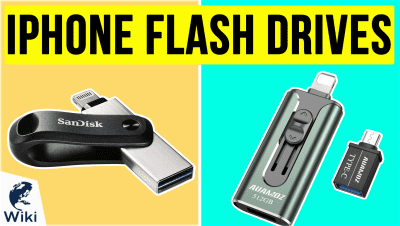6 Groups Making The Internet A More Accessible Resource
The internet is home to a vast array of resources and opportunities for people of all ages. Unfortunately, not everyone has a stable connection or owns the appropriate devices to access it, and in some cases, language barriers make it difficult for people to take advantage of certain services. Here, listed in no particular order, are some groups working to help connect people online.
First up, at #1, we have EducationSuperHighway. Founded in 2012, this non-profit aims to upgrade the internet access of every public school classroom in America, so that every student has the opportunity to take advantage of digital resources. Its mission is supported by governors in all fifty states.
Its Digital Bridge K-12 program works to increase connectivity outside the classroom by providing every public school in America with a playbook to identify students who lack access to the Internet or a dedicated learning device at home. The organization's tools and resources provide best practices for researching, procuring, and deploying solutions and helping school districts set up device lending programs.
Taking the #2 spot is Next Century Cities, which supports mayors and community leaders across America as they seek to ensure that everyone has fast, affordable, and reliable broadband access. The group is committed to demonstrating the value of gigabit internet and its ability to attract new businesses, ensure civic participation, and connect residents to new opportunities.
The organization shares updates on its work and its member communities' connectivity initiatives around the country in its newsletters. Next Century Cities' Becoming Broadband Ready toolkit contains a compilation of practices for any community seeking strategies and solutions to connect its residents.
Next up, at #3, we have Byte Level Research. Founded in 2000, the company is dedicated to best practices in web and content globalization. It is the first firm to benchmark websites across all industries, resulting in the annual Web Globalization Report Card, which is designed to help guide marketing and IT executives.
The group offers training for marketing, web, and IT teams, providing hands-on recommendations that help companies improve usability, boost traffic to local websites, and save money along the way. The company's imprint, Byte Level Books, has published various non-fiction titles such as founder John Yunker's Think Outside the Country, which aims to help others gain a better understanding of the global internet and how to make the most of it.
At #4 is Powering Potential, which aims to use technology to enhance education and stimulate the imaginations of students in underdeveloped countries while respecting and incorporating values of the local culture. Its programs are designed to provide access to both online and offline educational resources as well as to train select school staff so that they are able to effectively facilitate use.
Through its SPARC program, the organization collaborates with local district education officers to identify schools that will receive solar-powered Raspberry Pi computers as well as an offline digital library by World Possible, which includes various articles, educational videos, and other programs and materials. Included in every SPARC installation is the Pi-oneer system, which allows teachers to utilize audiovisual teaching aids to improve student learning outcomes.
Next up, at #5, we have Connect Americans Now, a coalition of organizations and companies committed to completely and swiftly eliminating the digital divide in the country by supporting a mixed-technology approach that leverages the full potential of every tool in the nation's toolkit.
To provide affordable and reliable service in rural communities, the organization seeks to deploy a combination of wired and wireless technologies, utilizing a range of frequencies, including TV white spaces. As part of its efforts, Connect Americans Now has spearheaded educational campaigns across the country, working with lawmakers to introduce a resolution calling on the FCC to support TV white space technology.
Finally, at #6, we have Affordable Language Services, a provider of innovative solutions aimed at overcoming communication barriers. The company's translation services include finding qualified linguists who are fluent in its customer's original and target language who are also experts in the client's field or industry.
The company also offers website translation services, which take into account all of the client's target cultures' rules and nuances when it comes to language in order to avoid embarrassing or offensive mistakes. When localizing a website, the service also takes into consideration the intended audience's units of measurement, local currencies, typeface, number and date formats, and the use of graphics.




